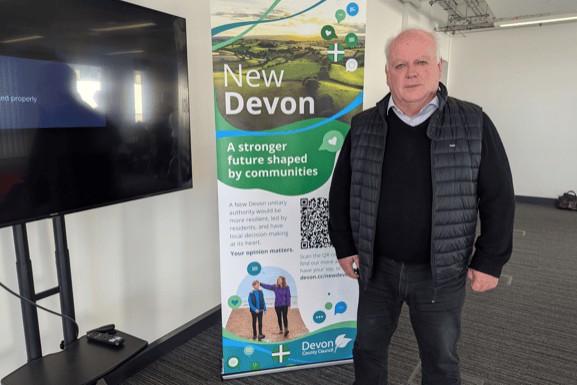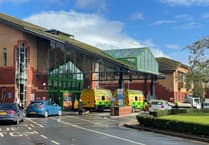SENIOR councillors at Devon County Council have welcomed a major new report from the County Councils Network (CCN), which warns that breaking up county councils into smaller unitary authorities could seriously harm the delivery of essential care services.
The report, Local Government Reorganisation: Analysing the Impact on People Services, provides strong evidence that larger councils are better equipped to deliver high-quality adult social care, children’s services, and support for people with special educational needs and disabilities (SEND).
It highlights risks including increased costs, reduced service quality, and challenges in recruiting senior care staff.
Devon’s lead option for reorganisation proposes replacing all eight district, city and borough councils, along with Devon County Council, with a single new unitary authority covering the current county footprint - avoiding fragmentation of care services.
Councillor Paul Arnott, Portfolio Holder for Local Government Reorganisation, said: “This report indicates that maintaining a unified council structure at scale is vital to protect the services on which our most vulnerable residents rely.”
Key findings from the report include:
• Councils with populations below 500,000 could face up to £270 million in extra annual care costs.
• Smaller councils may need up to 1,100 additional senior care staff, costing £95 million.
• Larger councils are more likely to receive ‘Good’ or ‘Outstanding’ Ofsted ratings.
• Fragmentation could lead to legal disputes over care responsibilities.
Councillor Richard Keeling, Cabinet Member for Adult Social Care and Health Services, said: “Smaller councils are more vulnerable to demand pressures and financial instability. Devon’s preferred model keeps services together and protects quality.”
Councillor Arnott added: “I remain sad that the government has forced us to abolish the districts and county councils. However, it became our statutory duty to engage in a full analysis and an extensive consultation with key partners and sectors across Devon, while listening hard to what the public have been telling us during public engagement events across the county.
“This authoritative report now backs the emerging concept that it is in the best interest of the people of Devon to move to one single unitary council.”
As well as protecting vital front line care services, the council’s lead option would see a network of local neighbourhood area committees, each comprising a range of representatives, including town and parish councils, health, police, voluntary and business sectors, as well as councillors from the new unitary authority.
Those local neighbourhood committees would have decision-making powers and budgets to improve local services for each community.
“These area committees will be crucial to ensuring that democracy is protected where you live,” Cllr Arnott added. “We would like to know what the public think of our lead option, and will be seeking their views on this specific option.
“We will also be discussing the lead option at Full Council in November before submitting the council’s final proposal to Government on November 28.”
Residents can find out more about the proposals and give their views via the council’s community engagement website here: Have Your Say Today - New Devon - Your Say On Our Future - Commonplace (https://devoncountycouncil.commonplace.is/ )





Comments
This article has no comments yet. Be the first to leave a comment.